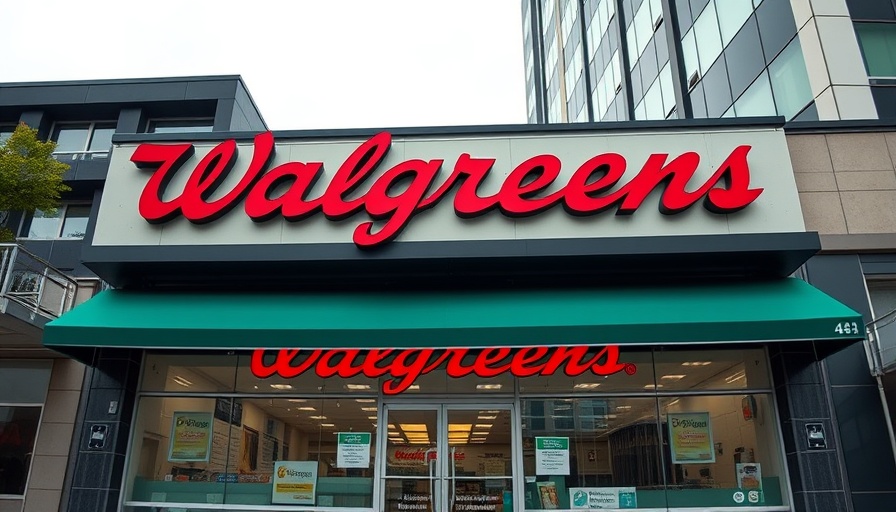
Significant Milestone: Walgreens to Go Private After Nearly a Century
Walgreens will soon embark on a new chapter as a private entity, with its shareholders recently approving a massive $10 billion acquisition by Sycamore Partners. This move marks the end of nearly 100 years of public trading for Walgreens, signaling a notable shift in the retail pharmacy sector at a time when companies are grappling with economic challenges.
Overwhelming Support from Shareholders
The acquisition saw resounding approval, with approximately 96% of shareholders voting in favor of Sycamore's takeover. This overwhelming support underscores the confidence held by shareholders in Sycamore's vision for Walgreens. Under this agreement, shareholders are set to receive $11.45 per share in cash, alongside potential future payouts from VillageMD businesses, increasing the transaction's total value to nearly $24 billion when factoring in debts.
A Strategic Move Amid Declining Sales
Walgreens is no stranger to financial struggles, with recent reports showing a troubling decline in sales. The company’s front-of-store retail sales fell by 5.3% year-over-year, and it even reported a net loss of $175 million. This acquisition is not merely a financial maneuver but a strategic realignment aimed at stabilizing the company's future amidst shrinking revenues and operational challenges.
The Broader Landscape of Retail Pharmacies
Walgreens' financial turbulence mirrors a troubling trend in the retail pharmacy industry. Rite Aid, another major player, has faced its own challenges, recently filing for bankruptcy twice in just over one year. This pattern highlights a broader industry issue where companies are adjusting to evolving consumer preferences and market dynamics.
Healthcare Investments and Future Directions
In its quest to diversify and enhance its healthcare offerings, Walgreens has invested heavily in the primary care sector, particularly through its stakes in VillageMD. However, despite significant investments, the healthcare segment has not yielded the expected returns, resulting in a $2.1 billion sales report for just the third quarter—a decline that raises questions about future prospects. The company’s pivot to privatization may allow for greater flexibility and focus on its rehabilitation efforts.
Enhancing Community Health: A Positive Outlook
As Walgreens prepares for its transition, this acquisition could serve to enhance its commitment to community health and wellness. With Sycamore’s backing, the company is poised to accelerate its turnaround strategies, which could include innovations in health services and integration with community health initiatives. For communities, this might mean better access to health and wellness products and services, potentially revitalizing local economies.
Concluding Thoughts on the Future of Walgreens
Overall, the impending privatization of Walgreens reflects broader trends in the retail and healthcare landscape, forcing companies to reconsider their operational strategies in the face of declining sales and changing market conditions. For stakeholders, this acquisition not only represents an attempt to restore Walgreens' profitability but also emphasizes a commitment to enhancing customer experiences in pharmacy and healthcare services. We’ll have to wait and see how this new chapter unfolds for Walgreens in the coming months.
 Add Element
Add Element  Add Row
Add Row 



 Add Row
Add Row  Add
Add 


Write A Comment